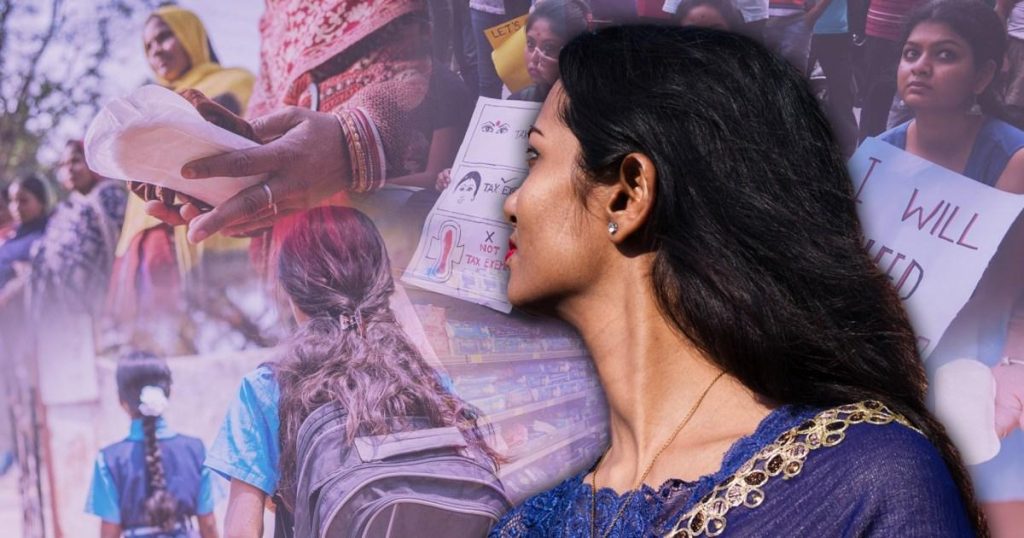The Pervasive Burden of Period Poverty in India: A Multifaceted Challenge
Menstruation, a natural biological process, continues to be a source of significant hardship for millions of women and girls across India. Period poverty, marked by the inability to afford essential sanitary products and the lack of access to proper hygiene facilities, casts a long shadow over their lives, impacting their health, education, social participation, and overall well-being. Stories of women like Nagamma, who endured the indignity of washing and reusing rags, highlight the distressing reality faced by countless individuals who lack access to even basic menstrual hygiene. The stigma surrounding menstruation further exacerbates the problem, silencing discussions and perpetuating harmful practices. This complex issue demands urgent attention and multifaceted solutions to alleviate the suffering and empower women to manage their periods with dignity.
The financial burden of purchasing sanitary products is a significant impediment for many, particularly in rural areas. Women like Suma, a 22-year-old social worker, are forced to undertake arduous journeys to procure pads, sacrificing valuable time and resources. This economic strain disproportionately affects low-income families, perpetuating a cycle of poverty and hindering women’s ability to participate fully in their communities. The lack of access to affordable and readily available sanitary products forces many to resort to unhygienic alternatives, such as rags, leaves, and other potentially harmful materials. This not only poses significant health risks, including infections and reproductive complications, but also reinforces feelings of shame and inadequacy.
The pervasive stigma surrounding menstruation further complicates the issue. Deepika, a 15-year-old student, articulated the anxiety and embarrassment she experienced due to the taboo surrounding periods. This fear of leakage and staining, coupled with the lack of appropriate sanitation facilities in schools, contributes to girls missing school during their periods. The cumulative effect of these missed days can lead to falling behind in their studies and, in some cases, even dropping out altogether. The social exclusion experienced by menstruating women, who are often barred from religious events and social gatherings, further reinforces their marginalization and restricts their participation in community life. Sushilla, a dairy farmer, shared her experience of being unable to attend weddings and temple visits due to her period, highlighting the social limitations imposed by these outdated beliefs.
The lack of open conversations about menstruation contributes significantly to the perpetuation of misinformation and harmful practices. The silence surrounding this natural process leaves many young girls unprepared and uninformed, experiencing their first period with fear and confusion. This lack of awareness also hinders the adoption of safer and more hygienic menstrual practices. Breaking the silence around menstruation is crucial to dispelling myths, promoting accurate information, and empowering women and girls to manage their periods with confidence and dignity.
Addressing period poverty requires a comprehensive approach that tackles both the practical and social dimensions of the issue. Increasing access to affordable and readily available sanitary products is paramount. This can be achieved through government subsidies, distribution programs, and the promotion of locally produced, sustainable alternatives like menstrual cups. Improving sanitation infrastructure in schools and public spaces is also essential. Providing clean and private toilets with proper disposal facilities can alleviate the anxiety and embarrassment experienced by girls and women, enabling them to manage their periods hygienically and discreetly.
Finally, challenging the stigma surrounding menstruation is fundamental to achieving lasting change. Comprehensive education programs, starting in schools and extending to communities, can help dispel myths, promote open dialogue, and foster a more positive and accepting environment surrounding menstruation. Encouraging conversations within families and communities can help break the silence and normalize this natural biological process. Empowering women and girls with accurate information and access to appropriate resources can not only improve their physical health and well-being but also enhance their social and economic opportunities, enabling them to participate fully in all aspects of life. The stories of Nagamma, Suma, Sushilla, and Deepika serve as a poignant reminder of the urgent need to address period poverty in India and create a society where menstruation is no longer a source of shame or hardship but a normal and accepted part of life. Through collaborative efforts and a multifaceted approach, we can strive towards a future where every woman and girl has the right to manage her period with dignity and confidence.











